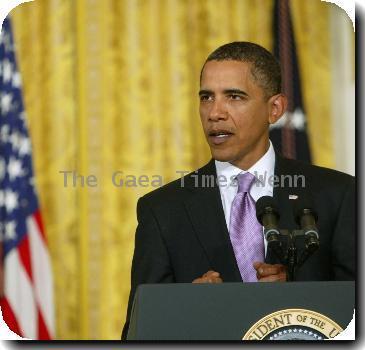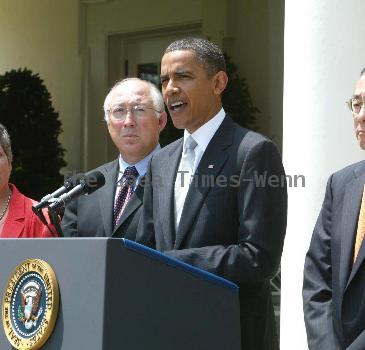In blow to White House, Senate urges lawmakers to drop car dealers from consumer rules
By Jim Kuhnhenn, APMonday, May 24, 2010
Senate: Exclude car dealers from consumer rules
WASHINGTON — In a rare defeat for President Barack Obama, the Senate on Monday called for auto dealers to be excluded from the regulations of a proposed consumer financial protection bureau.
The nonbinding 60-30 vote provides direction to lawmakers as they assemble broad Senate and House bills setting new, sweeping controls on Wall Street. The Senate passed its bill last week; the House acted in December.
The House bill already includes an exemption for auto dealers, who mounted a vigorous lobbying campaign to escape the reach of the legislation. While the Senate bill does not include such an exclusion, Monday’s vote gives auto dealers an extra measure of leverage to avoid the reach of a consumer entity.
With House-Senate negotiations on the bill expected to conclude next month, the talks provide an opening for a last lobbying thrust before the legislation reaches the president for his signature.
Obama has argued forcefully against diluting the bill’s consumer provisions. The administration has enlisted the help of the Pentagon, which maintains soldiers are especially prone to car loan schemes, and Obama himself spoke out against the exclusion last week.
Auto dealers say they only process the loans and then turn them over to other lending institutions for them to administer and service. The exclusion would not apply to auto dealers that provide their own financing, such as Carmax, or to giant auto lender GMAC.
“There’s not a single auto dealer on Wall Street,” said Sen. Sam Brownback, R-Kan., the leading sponsor of the exclusion. “These are Main Street businesses and they took it on the chin last year.”
Senate Banking Committee Chairman Chris Dodd, D-Conn., argued that auto dealers, like community banks and other institutions that assemble mortgages and other loans, should fall under the agency’s oversight.
“The second-largest purchase that most Americans make is the purchase of an automobile,” he said. “We buy a home and we buy an automobile, and they are expensive. … We’re trying to protect people.”
The Senate vote was not as significant as if the auto dealer exclusion had passed as an amendment to the Senate bill. But the vote was strongly bipartisan, with 21 Democrats voting in its favor.
Senate Republicans last week decided to withdraw an amendment to exclude the dealers from regulation for Republican tactical reasons aimed at keeping a Democratic amendment on banks from reaching the floor.
Dodd will be a member of the House-Senate conference committee that will blend the final bill. House Financial Services Committee Chairman Barney Frank, D-Mass., will chair the conference committee.
Senate Majority Leader Harry Reid, D-Nev., did not announce other members of the committee on Monday. But a list circulating late Monday on Capitol Hill and among lobbyists did not contain any Democrats who voted to exclude the auto dealers.
In a posting on the White House website Monday, Obama’s deputy communications director, Jennifer Psaki, wrote: “The president has been clear on this issue, repeatedly urging members of the Senate to fight efforts of the special interests and their lobbyists to weaken consumer protections.”
The Senate on Monday also voted to instruct House and Senate negotiators to exclude insurance company affiliates of banks from rules in the Senate bill that would force depository institutions to spin off their business in complex securities known as derivatives. The bipartisan measure passed 87-4.
Auto dealers may well have more clout than even powerful automakers on Capitol Hill; while automotive factories are scattered here and there around the country, it’s hard to imagine a House member without a car dealership in his or her district.
Car dealers made at least $3 million in campaign donations at the federal level this election cycle, with more than two-thirds going to Republicans.
In the 2008 election, they gave at least $11.9 million, steering more than three-quarters to the GOP, according to data compiled by the nonpartisan Center for Responsive Politics. Automakers, by comparison, gave $2.6 million in the 2008 election, split almost evenly between Democrats and Republicans, and at least $340,000 this election cycle, with 58 percent going to Democrats.
Associated Press writer Sharon Theimer contributed to this report.
Tags: Automobiles, Barack Obama, Car Buying, Government Regulations, Industry Regulation, Lobbying, North America, Political Issues, United States, Washington





